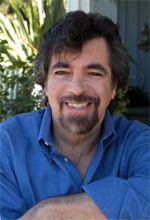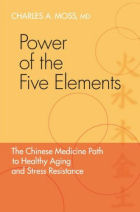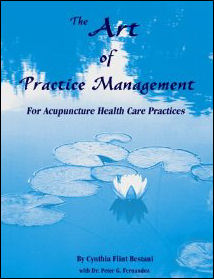Acupuncture & TCM Articles

Neil R. Gumenick is the founder and Director of The Institute of Classical Five-Element Acupuncture. Neil is a Worsley certified advanced teacher of Classical Five-Element Acupuncture and a practitioner with over 27 years of private practice experience. Neil holds three degrees from the College of Traditional Acupuncture (U.K.), and he participated for 10 years in the Master Apprentice Programô, led by Profs. J.R. & J.B. Worsley. Neil has taught at the USC and UCLA Schools of Medicine, the Worsley Institute of Classical Acupuncture, the Traditional Acupuncture Foundation, California Acupuncture College, Santa Barbara College of Oriental Medicine, and Pacific College of Oriental Medicine. He has been a Professor at Emperor's College of Traditional Oriental Medicine and SAMRA University of Oriental Medicine. Neil is co-author of The Art of Practice Management for Acupuncture Health Care Practices
The Teachings of Professor J.R. Worsley, Part One
By Neil Gumenick, MAc (UK), LAc, Dipl. Ac and Judy Becker Worsley, Dr. Ac. (UK), JD
For thousand of years, the Chinese have recognized that the Five Elements - Wood, Fire, Earth, Metal and Water - exist in everything and everyone, and are essential for life.
Classical Five-Element acupuncture asserts that every human being is born with, or develops early in life, an imbalance in the natural functioning of these Five Elements. This imbalance becomes the underlying cause of illness.
Classical Five-Element acupuncture is set apart from other systems of acupuncture by its core premise of diagnosing and treating a patient's fundamental Causative Factor: the element among the five that is the source of imbalance. The causative factor is assessed by way of sensory information provided by the body, mind and spirit of the patient. Each of the elements has a corresponding odor, color, sound and emotion, which can be perceived when a particular element is out of balance. Accurate diagnosis and treatment of the causative factor is the key to classical Five-Element acupuncture. In addition, this elegant system recognizes that the health of each unique individual's body, mind and spirit must be taken into account to fully understand and treat the cause of illness. Thus, no two patients are ever treated the same.
 
Professor J.R. Worsley, universally acknowledged as the father and master teacher of Five-Element acupuncture in the modern world, brought this system of medicine to the West. A titled Master, a designation bestowed upon him by his Masters, J.R. died on June 2, 2003. Consistent with this heritage of master training and strict adherence to traditional teachings, J.R.'s teaching methods were highly personalized, and he created programs to ensure that this lineage would be continued after his death.
This article seeks to clarify terms and simply present what Professor J.R. Worsley taught. This is important to do as others now attempt to carry forward the essence of his great work. As is always the case in historical moments of transition, there is the temptation to alter and embellish. However, there is no need to re-interpret or add modern spins to the ancient system that J.R. taught, as it is based on the timeless teachings of Nature itself. J.R. warned that human beings, unfortunately, will always want to create new improvements and clever interpretations, and that doing so would only clutter the simple beauty of this elegant system of natural medicine.
In the mid-1980s, visiting professors from China advised Professor Worsley to call the type of Five-Element acupuncture he taught "classical Five-Element acupuncture." This classical category adheres to the exact tradition as it was taught thousands of years ago and remains virtually unaltered today. However, as is often the case with students who train with a Master, there are many who trained with J.R. over the years that have chosen to develop and practice their own variations of his teachings. While innovation and variation are to be expected in the life of any discipline, it is important to clearly articulate the original teachings so that students and the public can make informed decisions about Five-Element acupuncture. Two recent variations of what J.R. taught are worth noting, and are explained in more detail later in this article.
"Constitutional" Five-Element acupuncture is a recently introduced notion that uses as its premise the "constitutional factor," abbreviated in the same fashion as J.R.'s terminology as "CF." Obviously, the language similarity to causative factor as taught by J.R. is very likely to cause confusion. Causative factor and constitutional factor are not the same thing.
Another variation of J.R.'s work refers to the causative factor as the "guardian element" and interprets the elements in this new style. It is very important that anyone wanting to learn classical Five-Element acupuncture know that this new interpretation was not what J.R. taught.
J.R diligently prepared, as any Master would do, for the day he would die. J.R. did not leave the destiny of this precious tradition to assumers. He spoke in public, on videotape, and committed to writing about his intentions. He named his successor and trusted custodians of his work. He taught for decades, and in the last 20 years, always with a media team recording his teachings. In 1997, he selected a group of formal apprentices to train and develop further as practitioners, teachers and leaders under his guidance, and that of the Master-Designate, to carry the tradition of classical Five-Element acupuncture forward. With the deepest gratitude to J.R. for his teachings and his unwavering love for us, his students, we humbly dedicate this article to his memory, in the knowledge that we write with his expressed authority to speak for him and his teachings, under J.B. Worsley's direction.
Be Yourself.
J.R. taught how to recognize the authentic Self. He taught that everything a practitioner would ever need to diagnose and treat patients dwells within. He taught that this medicine could not be learned from books. He often said, "If you want a teacher, go and find yourself a child below the age of one, before his/her mind has been conditioned and polluted." J.R. taught how to access beyond thinking to that childlike spontaneity beyond categorizations, characterizations and labels.
Our Uniqueness and Causative Factor
He taught that every human being is a unique individual, a unique balance of the Five Elements: Wood, Fire, Earth, Metal and Water. No two people are the same, regardless of the similarities of their symptoms or of their underlying elemental imbalance, which he termed the causative factor.
We all have a causative factor, but this does not define who we are, fundamentally or constitutionally. Causative factor defines the cause and the source of imbalance. Experiences, personality, constitution, values, beliefs, preferences and psycho-spiritual dynamics count amongst the many factors that determine individual uniqueness; however, these are irrelevant to the causative factor determination.
J.R. never used the term "constitutional imbalance" or "constitutional factor." Causative factor was J.R.'s signature mark in the acupuncture world, and the phrases are not interchangeable. J.R. stated that there is nothing constitutional about one's CF; CF does not define one's essential nature. If, for example, one were to see a rose withering from lack of water, it would be absurd to describe the nature or constitution of the rose by the qualities of water. CF is a unique diagnostic aspect of classical Five-Element acupuncture.
J.R. taught that there is absolutely no value judgment ascribed to any element, whether it is the causative factor (CF) or not. The causative factor is neither negative nor positive, and reveals no special insights or guardianship any more than the water needed by the withered rose in the previous example. It is simply what the rose needs to flourish. The elements are, of themselves, neutral and equal in value. Nature is our guardian and requires no additional positive spin or embellishment. It is simply what it is. When we are at one within ourselves, with our senses awake, we perceive Nature's essential reality without mental commentary and recognize that any sort of thinking about the elements is merely just that: thinking. J.R.'s teaching was to "Be."
The Internal State
J.R. taught to observe one's own internal state, thus enabling one to cultivate a state of awareness, empty of mental chatter. When in this state of peace and stillness, one is able to clearly perceive the causative factor, the imbalanced elements within the CF, the primarily affected official, the level at which the primary imbalance exists (physical, mental or spiritual), and the exact points needed to treat. J.R. showed, with countless patients, that symptoms are merely distress signals of the body, mind and spirit saying, in essence, "Help!" To access the deeper levels of cause, he taught how to be "present." Before launching into questions about patients' problems, it is vital to achieve rapport, or oneness within oneself and with the patient. Only when in rapport, a state of internal quietude, does a practitioner have the presence to access the true diagnostic information to assist Nature to correct imbalance.
The experience of being in rapport is very different than the experience of coming from the head: "Well, now I'll offer this person sympathy, anger, fear, etc. and test/see what happens." It is a contrived approach, based upon assumptions and categorizations, and is inauthentic. J.R. taught to test - to stretch/test oneself by going beyond one's own emotional comfort zones.
We have, in the West, been intensely conditioned to rely on the mind. We think our way through life and have been rewarded since childhood for so doing, for our intellectual accomplishments. J.R. taught, however, that once the basic framework of this system was learned, the "head" days were over. He warned, "Practicing this system of medicine from your senses is very easy. Coming from your head, it is impossible." He taught to beware of seemingly easy methods and shortcuts - attempting to replace authentic, direct experience with characterizations which are precisely coming from the head.
The Myth of "Types"
J.R. emphasized that there are no such things as elemental types. To think of people in such terms is simply that: thinking. He taught that one can draw no conclusions based on any categorization: not body type or shape, facial expression or characteristics, behavior, gestures, personality traits, spoken words, symptoms, attitudes or personal history. For every Earth-imbalanced patient that is built like the Pillsbury Doughboy (thick, soft and fleshy), we can show you another that is the exact opposite: thin, hard and angular (or any other combination of physical traits imaginable). For every Wood-imbalanced person that manifests anger, we can show you a Fire-, Earth-, Metal- or Water-imbalanced person who gets even angrier. Every person must and will express every emotion, and each element contains all five. The relevant issues are the quality and the appropriateness of the emotion.
No two fragrant odors are the same, nor are two shades of yellow, singing voices, nor expressions of sympathy, yet these indicators, unique to each individual, will clearly express Earth as the underlying causative factor. As in Nature, Earth can be dry and sandy, loamy, rocky, clay-like, volcanic, unstable and quaking, and so on, yet it is still Earth. Such endless variations can be found in any element and, therefore, in individuals as well.
What is Water? Is it the roaring ocean, a peaceful lake, a meandering stream, a thunderous rainstorm, a gentle drizzle? Are they not all expressions of Water? Metal can be diamond, gold, air, molten lava, rotting leaves and excrement. Wood can be a seed, a blade of grass, and a massive oak - everything that grows from the Earth. Fire can be a raging forest fire, a cozy fireplace, a smoldering ember, a single spark, burning rubbish, the heat of the summer sun, the light of a distant star - all expressions of Fire, no two ever the same. Once one knows the causative factor, the elements within, and the level of the disease, then one can understand the how and why of an individual patient's symptoms, physical presentation, attitudes, behaviors and so on. It is never the reverse.
The Elements Within
J.R. taught that to better understand the uniqueness of a person, one must look at the state of the elements within the causative factor. Every element contains within itself all five elements, and each brings its own unique qualities to every person, regardless of the primary imbalance. These qualities will and must influence the way in which a person manifests him/herself. The element within is the secondary element that has, in effect, caused the imbalance in the CF. Even more subtly, there is a third element within the secondary. This element, having caused the imbalance in the secondary, will manifest as a third dimension of odor, color, sound and emotion.
 
The Art of Practice Management for Acupuncture Health Care Practices
What you will find in this book is a specific, comprehensive approach that gets to the root cause of success in practice.
This new book presents acupuncture practice as art from the standpoint of centering, qi, and wholeness. It builds on the premise that practices succeed from bridging inner and outer aspects of the self. It is an inquiry into the self and addresses clear understandings and approaches to reputable patient care and practice qi. It brings in the five elements and work with the seasons of practice from training and start-up to growth, stability, expansion and transformation. The authors artfully bridges the essence of both patient and practitioner well-being without excluding the practicalities of financial well-being. This book very specifically and extensively shows how the different parts of practice nourish and feed one another and are interdependent on one another for the qi to flow synchronistically.
It explores the dual nature of procedures that work and those which do not in acupuncture health care practice, returning again and again to the delicate balance of practicality and spirituality.
|
